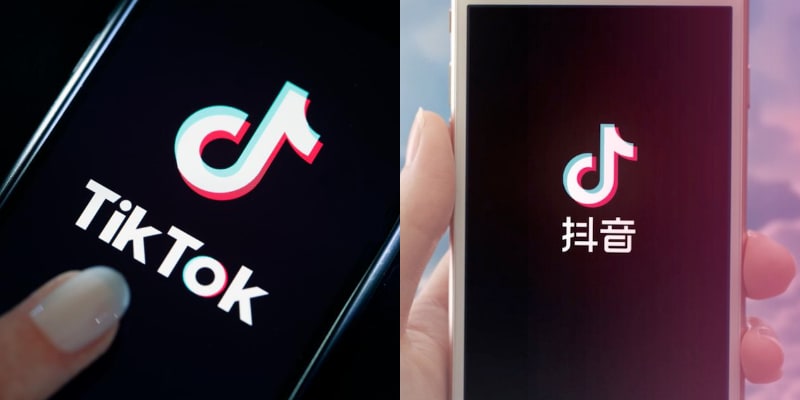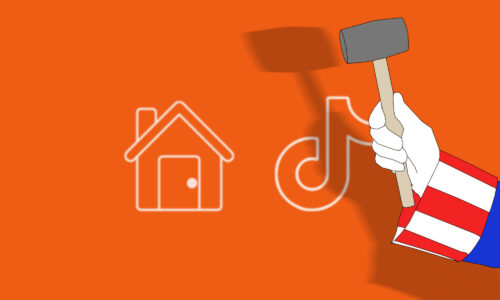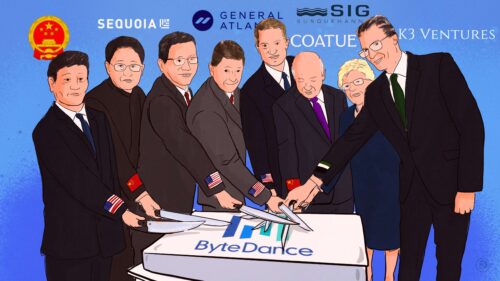The difference between TikTok and Douyin
In China, TikTok is known as Douyin (抖音 dǒuyīn), and both apps are made by Bytedance, a Beijing-based internet company. But the two apps are not exactly the same.

For the New Yorker, Jia Tolentino describes in gorgeous detail (porous paywall — definitely worth the click) the addictive algorithms of TikTok, a.k.a. 抖音 dǒuyīn. This is the video app from Beijing-based Bytedance that has expanded beyond China to hook millions of teenagers in the U.S., India, and elsewhere. But Duoyin and TikTok are not exactly the same:
Though it remains broadly similar to TikTok, Douyin has become more advanced than its global counterpart, particularly with respect to ecommerce. With three taps on Douyin, you can buy a product featured in a video; you can book a stay at a hotel after watching a video shot there; you can take virtual tours of a city’s stores and restaurants, get coupons for those establishments, and later post geo-tagged video reviews. Fabian Bern, the head of a marketing company that works closely with Douyin influencers, told me that some power users can make “fifteen to twenty thousand U.S. dollars” on a shopping holiday like Singles’ Day.
Chinese social media consultant Matthew Brennan added a video on Twitter yesterday, demonstrating how Douyin “now has in-video search. Search someone’s face to find more videos of them. Search in-video products or clothes and buy directly.” What’s on Weibo has more detail on this new feature: TikTok’s in-video search function (and how to activate it).
Chinese TikTok now has in-video search. Search someone's face to find more videos of them. Search in-video products or clothes and buy directly #抖音 pic.twitter.com/RBcIqnOBgN
— Matthew Brennan (@mbrennanchina) September 23, 2019
Douyin also has an older user base than TikTok, as it “now contains micro-vlogs, life-style content, business advice, and videos from local police.” Some rural city governments “have begun advertising their regions’ produce and tourist attractions on the app.”
China news, weekly.
Sign up for The China Project’s weekly newsletter, our free roundup of the most important China stories.
Is TikTok censoring content sensitive to the Chinese authorities? It appears so: footage of the protests in Hong Kong was strangely completely absent from the platform, according to a Washington Post report last week.
Tolentino considers this question:
It’s true that the Hong Kong user base is not large, relatively speaking — TikTok told me that the app had fewer than a hundred and fifty thousand daily active users there — though that is the case for Twitter, too, and videos from the protests have gone viral on that platform. TikTok is generally thought of as a place for goofing off rather than for engaging in political discourse, and a TikTok executive dismissed the idea that the company was manually or algorithmically suppressing Hong Kong-related content. But one of the risks of giving our attention to entertainment governed by privately controlled algorithms is that those who own the algorithms will always be able to say that they are merely delivering what we want to see.
UPDATE, 9/26: The Guardian obtained “leaked documents detailing [TikTok’s] moderation guidelines,” confirming what many had suspected: Bytedance censors political content on its app closely and in line with Beijing’s priorities, just like Tencent and any other major China-based social media company.
The guidelines divide banned material into two categories: some content is marked as a “violation”, which sees it deleted from the site entirely, and can lead to a user being banned from the service. But lesser infringements are marked as “visible to self”, which leaves the content up but limits its distribution through TikTok’s algorithmically-curated feed.
This latter enforcement technique means that it can be unclear to users whether they have posted infringing content, or if their post simply has not been deemed compelling enough to be shared widely by the notoriously unpredictable algorithm.
The bulk of the guidelines covering China are contained in a section governing “hate speech and religion”.
In every case, they are placed in a context designed to make the rules seem general purpose, rather than specific exceptions. A ban on criticism of China’s socialist system, for instance, comes under a general ban of “criticism/attack towards policies, social rules of any country, such as constitutional monarchy, monarchy, parliamentary system, separation of powers, socialism system, etc”.
Another ban covers “demonisation or distortion of local or other countries’ history such as May 1998 riots of Indonesia, Cambodian genocide, Tiananmen Square incidents”.
A more general purpose rule bans “highly controversial topics, such as separatism, religion sects conflicts, conflicts between ethnic groups, for instance exaggerating the Islamic sects conflicts, inciting the independence of Northern Ireland, Republic of Chechnya, Tibet and Taiwan and exaggerating the ethnic conflict between black and white”.
Other articles that we have in recent months highlighted about TikTok, which indicate that its parent company Bytedance may be the next Chinese company to face scrutiny from the U.S. government:
- Few US TikTok users know the app is Chinese, but it could matter if they did / China Books Review
- Opinion | We should worry about how China uses apps like TikTok / by Nick Frisch in NYT
- TikTok is China’s next big weapon in the battle for personal data / Axios
- TikTok brings Chinese-style censorship to America’s tweens / Bloomberg






